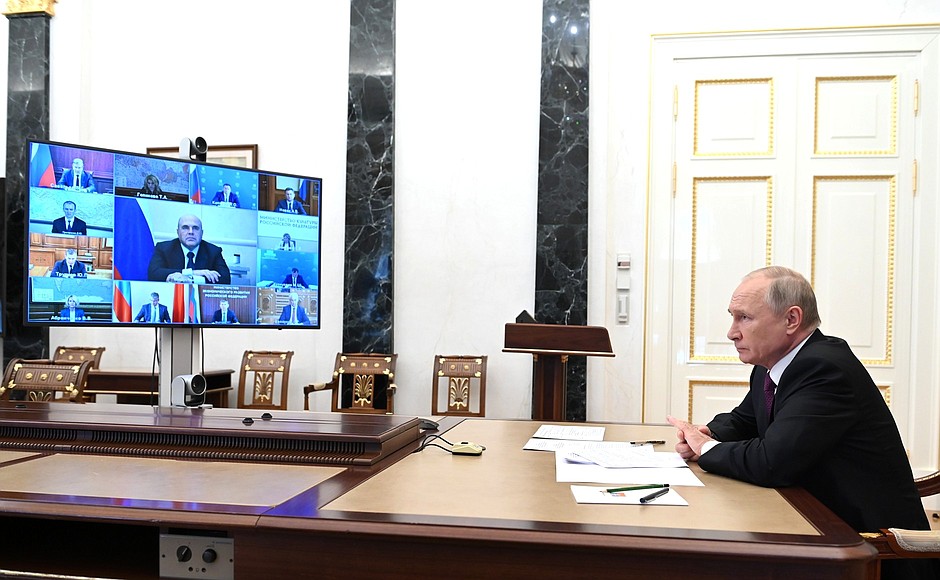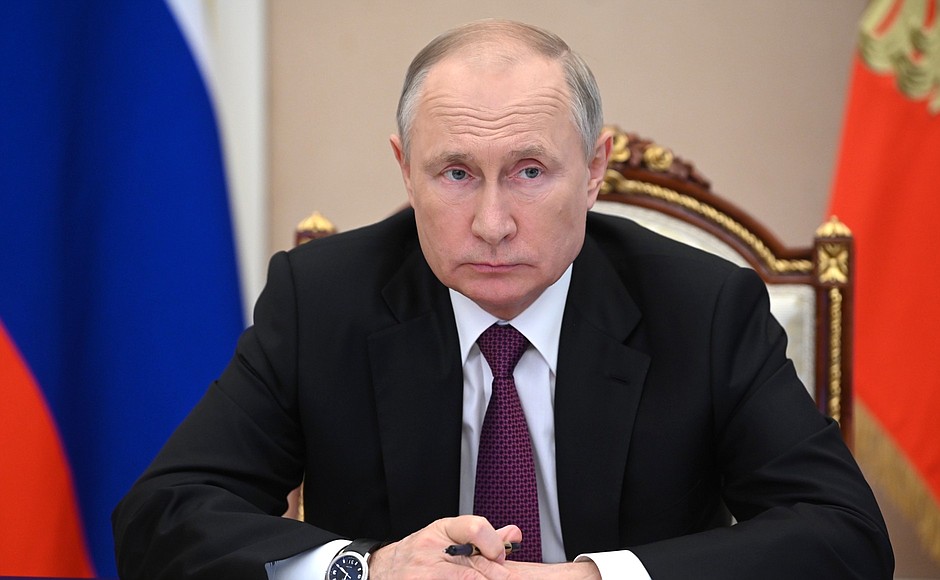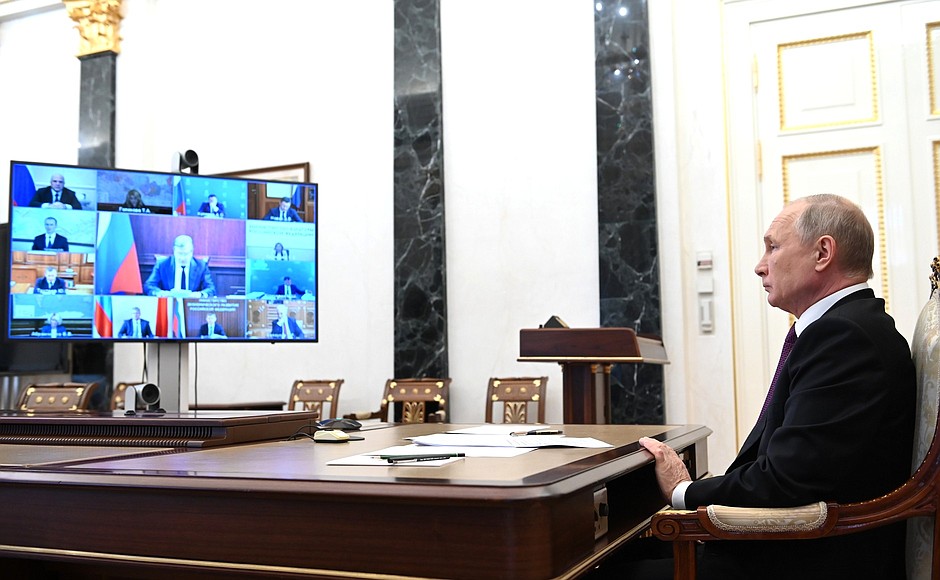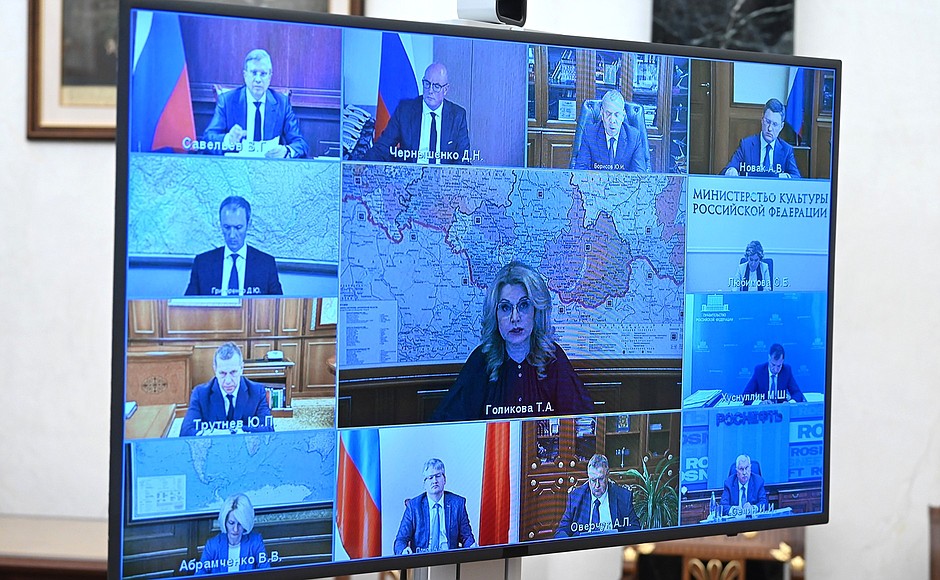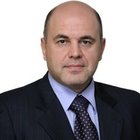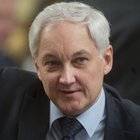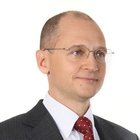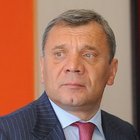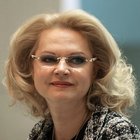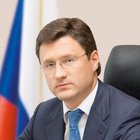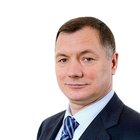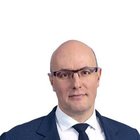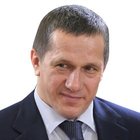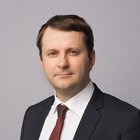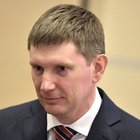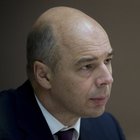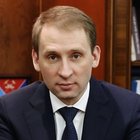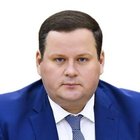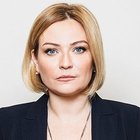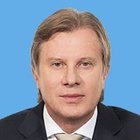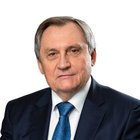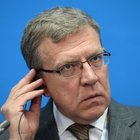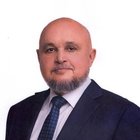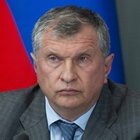The meeting was attended by Prime Minister Mikhail Mishustin, First Deputy Prime Minister Andrei Belousov, Acting Chief of Staff of the Presidential Executive Office Sergei Kiriyenko, deputy prime ministers Viktoria Abramchenko, Yury Borisov, Tatyana Golikova, Alexander Novak, Alexei Overchuk, Marat Khusnullin and Dmitry Chernyshenko, Deputy Prime Minister – Chief of the Government Staff Dmitry Grigorenko, Deputy Prime Minister – Presidential Plenipotentiary Envoy to the Far Eastern Federal District Yury Trutnev, Presidential Aides Maxim Oreshkin and Dmitry Levitin, Minister of Economic Development Maxim Reshetnikov, Minister of Finance Anton Siluanov, Minister of Natural Resources and Environment Alexander Kozlov, Minister of Labour and Social Protection Anton Kotyakov, Minister of Culture Olga Lyubimova, Minister of Transport Vitaly Savelyev, Minister of Energy Nikolai Shulginov, Chairman of the Accounts Chamber Alexei Kudrin, Governor of Kemerovo Region – Kuzbass and Chairman of the State Council Commission on Energy Sergei Tsivilev, Chairman of the Management Board of Rosneft and Executive Secretary of the Presidential Commission for Strategic Development of the Fuel and Energy Sector and Environmental Security Igor Sechin, as well as the heads of EVRAZ plc, Russian Railways (RZD), Elgaugol Ltd, and SUEK.
* * *
President of Russia Vladimir Putin: Good afternoon, colleagues.
As you will remember, yesterday we celebrated the 300th anniversary of Kuzbass, and so the main item on our agenda today is a discussion of socioeconomic development projects in Kemerovo Region.
But before we proceed with our main issue today, we will talk about several current matters. We will have to begin with the tragedy that took place in Kamchatka. As you know, an An-26 plane crashed there, claiming lives. I hope that all social matters and assistance to the victims’ families will be settled without delay.
We must be in contact with Vitaly Savelyev. Mr Savelyev, can you update us on the situation?
Minister of Transport Vitaly Savelyev: Mr President, colleagues,
On July 6, a Kamchatka Aviation An-26 aircraft was on a regular flight from Petropalovsk-Kamchatsky to Palana. There were six crew members and 22 passengers aboard the aircraft, including 20 residents of the village of Palana.
The plane was scheduled to land at Palana Airport at 5:50 am Moscow time but did not land as scheduled. The crew failed to answer calls from the air traffic controller. After contact was lost, the emergency alarm went off at Palana Airport. Airport rescue units, the Emergencies Ministry, the Defence ministry, the Ministry of the Interior and the airline launched a search-and-rescue operation.
At 12:06, Moscow time the destroyed aircraft was found during the rescue operation on the slope of a hill 3.6 km from Palana Airport. There were no survivors.
A government commission was promptly established, and I was appointed the commission head. So far, the commission members and I have flown over the crash site. Together with Kamchatka Territory Governor, we met with the relatives of the deceased, told them about the commission’s actions and answered their questions.
(The Minister went on to describe the measures taken to search for the aircraft, the removal and identification of the bodies and the inquiries by the technical commission into the causes of the crash, the continuation of the rescue operation and social support for the families of the deceased.)
Mr President, the commission will continue the process and ensure control over and implementation of the adopted decisions. Tomorrow we will meet with the flight team to discuss the current situation. Today, we flew to Palana again, and weather conditions were not good, but we landed there via a different route with no problem. So, we need to understand why the aircraft captain made a fairly complicated decision. We hope to receive answers to this question once we find the black boxes.
My report is over.
Vladimir Putin: Thank you.
I hope this will be done quickly and at the proper level.
I would like to express my sincere condolences to the relatives and friends of the deceased. Everything that needs to be done by the state will be done to support you.
Thank you, Mr Solovyev.
Let us move on to other issues.
Ms Golikova, what about the coronavirus situation and vaccination?
Deputy Prime Minister Tatyana Golikova: Mr President, colleagues,
The epidemiological situation in the Russian Federation remains tense. We recorded 162,400 cases of the disease last week. The prevalence of the disease is 110.7 per 100,000 people, which is 17 percent more than the previous week. However, the rate of increase has slowed a bit compared to the previous week when it increased by 24.2 percent. The number of new cases recorded in Moscow dropped to 29.6 percent. Moscow Region and St Petersburg are second and third. The other Russian regions account for a bit more than 52 percent of new cases.
The infection rate is growing in all 82 regions. We are seeing a slight reduction only in Moscow. I must say that this was due to the restrictions and a fairly high increase (by several times) in the vaccination rate. We believe these measures must certainly be continued.
(Ms Golikova went on to talk about the age indicators of the disease, the increase in the testing rate and the restrictions introduced in different regions. The healthcare system is working smoothly. At present, over 216,000 COVID beds have been deployed in the country, out of which 114,000 are equipped with oxygen and over 26,000 have ALV machines. Yesterday morning, 79.5 percent of beds were occupied in the Russian Federation. The federal and regional authorities are controlling the situation. The Government will soon allocate almost 2.5 billion rubles for drug purchases for almost 790,000 people infected with the coronavirus, which are receiving outpatient treatment.)
As you noted, Mr President, vaccination is the main factor in combatting the coronavirus. In the past week, the vaccination rate has increased by a national average of over 1.8 times. As of this morning, almost 27 million people have received the first jab. Of this number, 18.5 million have received both jabs.
Today the Chechen Republic, Moscow, Moscow Region, Tula Region, Krasnodar Territory, and Kemerovo, Sakhalin, Lipetsk, and Belgorod regions are vaccinating at the fastest pace. The worst rates are seen in the Dagestan Republic. Right before this meeting, we had another one with the regions, where we heard from the Republic of Dagestan, among others. My colleagues assured me that they have the situation under control and that they will speed up the vaccination campaign. Nevertheless, the epidemiological indicators and the incidence rate are frightening. The Federation has offered aid, but my colleagues assured me that they would manage. Nevertheless, I would like to stress that we are still concerned.
Considering the latest developments, the upcoming autumn and winter epidemiological season and the fact that more than six months have passed for many people since they were ill or vaccinated, the Prime Minister instructed us to clarify the herd immunity indicator. Considering the latest added categories, this indicator must be 80 percent of the adult population in Russia. Which categories are these? Those who recovered, those who got vaccinated, and people who were ill or were vaccinated more than six months ago and have been re-vaccinated. Now we are calculating a new epidemiological and mathematical model for achieving herd immunity based on this approach and considering the figure that I have mentioned.
In conclusion, Mr President, I would like to once again address our people. Today, it is necessary to follow doctors’ recommendations and the restrictions in order not to fall ill, and, of course, to get vaccinated.
Thank you.
Vladimir Putin: Thank you.
In your opinion, has the UEFA European Football Championship in St. Petersburg affected the coronavirus situation?
Tatyana Golikova: Mr President, even though the EURO 2020 organisers and the city authorities tried to observe the restrictions, people influenced by their emotions may not follow the recommendations properly, and today we can see the incidence rate growing in the city. However, we and the city administration are monitoring the situation and trying to adopt an entire range of necessary measures to stop this growth.
Vladimir Putin: Good.
Mr Kotyakov, starting April 1, we began to distribute payment benefits to families with children from 3 to 7 years of age, but under new rules. I would like to ask you to return to this and clarify some points.
In addition, on July 1 we started making benefit payments for children from 8 to 17 years old in needy single-parent families. Also on July 1, payments must be made to pregnant women who registered at maternity clinics at under 12 weeks. Finally, soon we must launch a broad campaign of lump sum payments to all families with school-age children.
I would like to ask you to return to this, to the issues I just mentioned, and tell us again how these measures are funded and organised.
Go ahead, please.
Minister of Labour and Social Protection Anton Kotyakov: Mr President,
Following your instructions, we are gradually building an integral system of support for families with children. Considering the new measures introduced on July 1, support will include pregnant women until childbirth, the upbringing of children from birth to 3 years old, from 3 to 7 years old, and then from 8 to 17 with a single parent.
The Pension Fund of the Russian Federation will make payments centrally from the social treasury. The necessary regulatory framework is ready. I am referring to the adopted federal law, the adopted Government resolution on payment rules, and the directive on allocating the money required for these benefits from the reserve fund.
We have worked out our cooperation to the last detail with the departments and organisations that supply us with information for assigning these payments: the Federal Tax Service, Rosreestr, the Traffic Police, the Bailiff Service, Child Protective Services, the Social Insurance Fund, and various medical organisations and court bodies. It is important to understand that in the past, people submitted this information in paper form, whereas now the social treasury is accepting and processing it digitally.
The new payments will be targeted. These are comprehensive means-tested benefits. In other words, they will be given to people whose average income is below the subsistence level.
(The Minister went on to describe in detail the procedure for accepting applications for new payments and determining the amount. As of July 7, applicants have already filed over 770,000 requests for benefits. In all, it is planned to grant these allowances to over 1.1 million people this year. The federal budget has earmarked more than 36 billion rubles for this purpose. As for lump-sum payments to families with schoolchildren, over 20 million children will be entitled to this on the eve of the academic year. Federal budget allocations will total approximately 204 billion rubles.)
Vladimir Putin: Mr Novak, tell us about connecting families to gas networks.
Deputy Prime Minister Alexander Novak: Mr, President,
In accordance with your instructions to speed up and complete the connection of homes to gas supply by 2030, the Prime Minister has approved a roadmap on introducing a socially oriented and economically efficient system for connecting people in the Russian regions to gas pipelines.
I would like to remind everyone that the relevant figure for 2020 was 71 percent and that we are to increase it to 75 percent by 2024 and 83 percent by 2030. This will amount to completing the project in accordance with the current fuel and energy balance plan, because other sources of energy are being used in many other regions.
Work is underway in all of the regions to adjust their fuel and energy balance plans. The Energy Ministry has prepared and dispatched to the regions instruction guidelines for coordinating target-oriented fuel and energy balance plans. Decisions will be made in accordance with them and your instructions on the most efficient type of fuel to be used in any given locality, with due regard for inter-fuel competition and the environmental impact of the use of various kinds of fuel.
Mr President, during your Annual Address to the Federal Assembly you also instructed the Government to ensure by 2023 the free extension of gas pipelines to the boundaries of households, which have not been connected to a gas supply for some reason in areas connected to gas networks. There are slightly more than 36,000 such localities in Russia.
(Alexander Novak went on to say what must be done to accomplish this ambitious programme, including major amendments to legislation. Based on the instructions of the Prime Minister, a special project titled Social Gasification has been launched, and regional and federal gas connection headquarters have been established to monitor and collect requests for connection to gas networks. The implementation of the connection plans within the framework of the Social Gasification project will be coordinated with the gas connection programmes, which the heads of regions will approve. These programmes are to be prepared by August 1, 2021.
Alexander Novak also said that approximately 4 million households are to be connected to gas supply within the Social Gasification project by the end of 2022. The scope of work to be completed is more than ten times larger than annual average projects implemented in the past few years. Members of parliament have been coordinating ways to reduce the construction timeframe and the cost of building gas pipelines. The relevant amendments have been made to the Town Planning Code and the Tax Code.)
Mr President, while doing this, we have also collected information on public support measures that are applied in the constituent entities of the Russian Federation. In more than 30 regions, support measures have been approved to help certain groups of people to lay gas pipelines on their plots of land and to purchase equipment. These measures mostly include financial assistance to certain low-income groups or subsidising the interest rates on loans taken out for this purpose.
We have issued recommendations to the other regions to work out similar support measures. We will monitor their implementation through the federal headquarters.
In conclusion, I would just like to point out once again that work is well underway. We have to accomplish a great deal within the next 18 months together with the regions and gas distribution organisations, and we will do everything possible to ensure the achievement of this ambitious goal, which is of great concern for the people, and to implement your instructions.
Thank you.
Vladimir Putin: It is indeed an ambitious project, about which you have reported in such great detail. It is important that it will be implemented. I would like to ask you to monitor it very closely. This is important for the people, and everyone knows that this can change the quality of people’s lives.
Thank you very much.
Here is another project, which we discussed quite recently. We have carefully analysed aspects of this seemingly simple matter. We had many conversations regarding this with the Prime Minister. It is the so-called Pushkin Card, to be distributed among people aged 14 to 22 for free visits to cultural facilities, specifically, museums, theatres and exhibitions. How is this work being organised? Ms Lyubimova, please.
Culture Minister Olga Lyubimova: Mr President, colleagues,
Special attention is being given today to creating conditions for bringing up harmonious and socially responsible individuals. In this context, the Government of the Russian Federation is using several crucial principles in the sphere of culture. For example, the Culture for Schoolchildren interdepartmental project was launched in 2019 to introduce the rising generation to the best works of culture in the country. The project’s main method is the organisation of schoolchildren’s trips to cultural facilities and exhibitions. For example, over 2,000 children attended the performances of the Shchepkin State Academic Drama Theatre in Belgorod.
We highly value themed meetings with outstanding workers of culture and the arts. Yevgeny Mironov, Vladimir Mashkov, Anna Netrebko and many others have become the first federal mentors of this project.
Finally, events to promote digital platforms are very important for us. These include Culture.RF and the National E-Library. We have initiated different themed events to attract children: Cultural Marathon Race, Chronicle of Hearts, Cinema Summer, Gallery of Literary Characters and even Cultural Botanics. The main event is the Cultural Marathon that already attracts over a million schoolchildren.
Initially, we chose 11 pilot regions and achieved impressive results. In the first year after its release, over 280,000 children took part in the Republic of Tatarstan, 372,000 in Krasnodar Territory and 159,000 in Saratov Region. These numbers include schoolchildren from remote areas, where whole classes went to regional centres. Last year, all 85 regions of Russia joined the project as we continued to expand it.
(The Minister went on to describe the Museum Routes of Russia project that consists of a series of on-site presentations and expert and methodological events for the exchange of experience by museum workers, tourist industry professionals and specialists in the development of territories. The goal is to drastically increase the attendance rates at museums, which will increase their revenue and create a resource foundation for the development of museum institutions.)
As an example, I would like to single out the Tsiolkovsky Cosmonautics Museum in Kaluga. After the opening of the second phase, this museum acquired unique high-tech equipment, including modern multimedia complexes. I would also like to mention the Kizhi Open-Air Museum in the Republic of Karelia that has become the flagship of ethnographic tourism and museum cooperation with UNESCO, as well as the Museum Neighbourhood in Tula that has opened a new stage in Russia’s museum development. This is world-class tourist infrastructure, both in terms of artistic content and the range of services offered to visitors.
This is a great example of effective work. After the opening of the borders and the lifting of pandemic-related restrictions, museum tourism has the capacity to ensure growth in overall foreign tourism in Russia.
And, finally, the Pushkin Card programme is designed to become an effective instrument in attracting the attention of the younger generation to cultural events.
Mr President, I would like to thank you for your support for this initiative, on which the Government is currently working. We plan to launch the Pushkin Card on September 1. Theatres, museums, concert halls, philharmonic societies and even libraries all over the country will join this programme. I am sure this is a serious challenge for them but they have been waiting for it for a long time. Importantly, the card will be valid not only at state, federal and regional institutions but also at private cultural centres that will join our programme.
As you noted during the Direct Line, any citizen aged between 14 and 22 can hold a Pushkin Card. This amounts to almost 13 million high-school, college and university students. To receive a card, they should simply apply for participation in the programme via the government services website. The owners of the Pushkin Card will be able to spend the funds credited to it only at cultural institutions and on cultural events. This is its key feature. It is impossible to cash it or resell a ticket for a theatre play.
We tried to simplify as much as possible the search for cultural events for all participants in the programme. The current events guide will be published on our Culture.RF website and the government services website. We hope young people will acquire the very important habit of visiting museums, while our cultural institutions will receive an opportunity to substantially expand and diversify their activities.
Vladimir Putin: Thank you.
Do you see any problems with launching this programme? Have you discussed all the details?
Olga Lyubimova: We are getting ready and working on the most important things ‒ repertory and the trailblazers of this programme. This is a new and very important area for us. We will be looking forward to September 1.
Vladimir Putin: Fine. Thank you.
Mr Mishustin has just been on a working visit to a number of regions in the Federation. He told me about it, he reported to me. He said one of the most interesting things was his visit to the industrial exhibition in Yekaterinburg.
Mr Mishustin, could you share your impressions with us please?
Prime Minister Mikhail Mishustin: Thank you, Mr President.
As I reported earlier, yesterday I completed my trip to Yekaterinburg and Tomsk. I took part in the country’s biggest exhibition, the Innoprom Platform.
Over 1,800 companies attended the Innoprom business programme this year. Thirty-eight countries sent delegations, and 11 of Russia’s foreign partners, including Japan, Belgium, Germany, Hungary, Poland and the Czech Republic, to name a few, staged their national expositions. Italy presented the biggest exposition and was Innoprom’s partner this year.
During our visit to the exhibition, we familiarised ourselves with the achievements of our domestic industry. We saw a Russian design for an Arctic class vessel; it included a steerable propeller. It held a central place at the exposition. KONAR, in Chelyabinsk, is starting to produce it. It will be used on high-capacity ships, including gas carriers that the Zvezda dockyards manufacture in cooperation with Rosneft. It is needed for moving through ice. This is an impressive project, Mr President.
We were also shown new machine tools, including the lathe machining centre. We recently visited the Metal Processing Exhibition in Moscow where we saw tools with foreign digital controls from well-known companies ‒ Fanuc and Siemens. At that point, we asked our domestic companies to match these systems with Russian designs. Mekhatronika and Sasta tool producer did it in just a month and a half. I was very surprised, but at Innoprom we saw a lathe machining centre with a fully Russian digital control system that is no less capable than its foreign counterparts.
We also looked at electric buses, trolley buses, helicopters, quadcopters and other eco-friendly transport vehicles that are produced with domestic components in Russia as well.
Yesterday, we met with executives from several large Russian and foreign businesses, including the heads of such well-known companies as Volkswagen, Pirelli, Enel, Kaspersky Lab and many others. We discussed the prospects for international cooperation and the general guidelines for industrial development, including digital transformation, robotisation of manufacturing processes, and the creation of flexible AI-based control systems and data protection. We thoroughly discussed government support measures and the steps we need to take to reduce the carbon footprint as well.
However, a strong manufacturing industry is more than just modern equipment, machine tools and other machinery. It is also about strong personnel. A network of world-class educational campuses for students across the country is being created upon your instruction. In particular, in Yekaterinburg, we supported an initiative to create a single modern campus at Urals Federal University. Importantly, private business will engage in construction as well; we agreed that those will include the companies that are already active in the region and were represented at the Innoprom exhibition. Of course, their investment will help the university expand.
Another world-class campus will be created in Tomsk at Tomsk University, the University of Radio Electronics and Tomsk Polytechnic University, as well as architectural, construction, and medical universities.
I was invited to the Tomsk State University’s scientific library, which boasts numerous valuable copies of books from different eras, including the first lifetime edition of Eugene Onegin by Alexander Pushkin.
The students asked questions about the Pushkin Card, which Ms Lyubimova just reported on, and which you mentioned during the Direct Line. The students were very positive about this idea. They are happy to be able to visit museums, theatres, exhibitions, and other cultural events more often again. The students cannot wait to start using the card. They are looking forward to our experiment. All I can say is that we have very bright students in our country.
That concludes my brief report, Mr President.
Vladimir Putin: Thank you.
If only they could visit theatres and museums more often during their holidays. They will go back to school on September 1, and they will not be able to take advantage of this card. Could you do it a little sooner?
Mikhail Mishustin: Mr President, it would be a challenge to do it earlier, since theatres, museums and exhibitions must make preparations for the Pushkin Card.
Vladimir Putin: They do.
Mikhail Mishustin: But I believe they will get a chance to use this programme during their next holidays.
Vladimir Putin: Good. Thank you very much. Thank you.
Let us go on to the main issue, the implementation of instructions on developing Kemerovo Region, Kuzbass and the Vostochny proving ground, which is vital for the entire industrial complex of Siberia.
I would like Mr Khusnullin to start. Go ahead, please.
Deputy Prime Minister Marat Khusnullin: Mr President, colleagues,
Mr President, in line with your instructions, in March this year, we endorsed the programme for the socioeconomic development of Kemerovo Region. The total funding is 55.2 billion rubles until 2024, including 51.3 billion from the federal budget.
The development measures mostly focus on the infrastructure and diversification of the economy. Implementation of the economic provisions will make it possible to create, by 2024, about 13,000 jobs in non-coal sectors and attract some 51 billion in private investment.
Measures to enhance investment appeal play an important role in the development of the Kuzbass economy. The Russian Government, the Ministry of Economic Development, submitted a draft law to the State Duma, which provides for the extension of tax benefits, in part, a reduced rate of premiums for operating residents in priority socioeconomic development territories.
(Mr Khusnullin went on to speak about import substitution, and the development of the Sheregesh sport and tourist complex. He also described social measures, including the elimination of dilapidated housing and the construction of medical institutions. The programme’s environmental section provides for the replacement of heating systems with gas and upgrading the rolling stock of national transport in Novokuznetsk ‒ one of the most polluted cities in Russia today. Implementation of these measures will make it possible to reduce the emission of pollutants in Novokuznetsk by 14,000 tonnes a year. Mr Khusnullin also mentioned the reconstruction of the left-bank dam on the Tom River, which is in critical condition now, with a view to protecting the lives and health of almost 2,000 people residing in the Chebalsu district in the city of Mezhdurechensk.)
The programme includes major infrastructure facilities. It provides for the reconstruction of the Sibir highway on the approaches to the city of Kemerovo. Funding for this project has been allocated for 2021 and will end at the first stage this year. The third stage will be finished in 2022. Mr President, we have also earmarked an additional 750 million rubles this year to bring regional and municipal roads up to proper standards.
We are also rebuilding Kemerovo International Airport. We need about 3.5 billion rubles. Currently, we are discussing with Rosaviatsia [Federal Air Transport Agency] the possibility of allocating these additional funds under the comprehensive trunk infrastructure plan.
The Kemerovo bypass is a key project in the programme. We have received approval from the Ministry of Finance for this. This bypass is estimated at 43 billion rubles. It is vital for the city. It will relieve traffic transiting through the city, create opportunities for housing construction, encourage the development of the city and help create new jobs.
We agreed that proper funding would be provided in the 2022–2024 budget for the projects that have so far remained unfunded. I have held a number of meetings with the Finance Ministry and the Ministry of Economic Development along with the Presidential Executive Office and Mr Oreshkin. We will carry out this work as part of the staff’s efforts to monitor compliance with the instructions.
That concludes my report on this matter.
I would like to report on the Eastern Operating Domain.
Vladimir Putin: Wait a second, Mr Khusnullin.
You have just listed several things, maybe not all, but most of them. You mentioned the airport, you have been there, and you know all about it. I was there yesterday – the runway is a washboard.
Marat Khusnullin: Yes.
Vladimir Putin: The pilot in command told me right away to buckle up, and the like. The flight attendant told me not to leave any glasses on the table. You see? You must do something about this, this is a serious matter. It is fine with me, I just flew in and out, I do not go there often, but people fly every day. This is my first point.
The second. Generally, referring to what you have just said, these 2022–2024 projects must be fully funded. I understand that the holiday is over, but our programme is designed for several years, so, without a doubt, we must keep in mind that the date comes and goes, but life continues, and since we saw that much needs to be done during our preparations for the holiday, it must be done. In order to do this, you need to provide funding for these projects. Therefore, I want you as Deputy Prime Minister in charge of these matters and the Finance Ministry to keep this in mind.
There are ongoing matters, like creating the proper environment for business, in priority development areas as well. You are probably aware that the proposals on extending the validity of priority development areas, including in Kemerovo Region, must be submitted by July 1, so that this work can continue or get started. This has to be done, and unfortunately, it has not yet been done. I want you to keep this in mind.
With regard to renovating the left-bank dam on the Tom River, which you mentioned, we should have this project completed this year; this should not be a problem.
And finally, building the bypass for the city of Kemerovo should be started this year. Can this be done, Mr Khusnullin?
Marat Khusnullin: Yes, Mr President, we will start this year. The Governor and I discussed this thoroughly. We will begin this project this year as soon as we obtain the first set of documentation for preparatory work without waiting for the main phase of construction. We set a goal to complete this project in three years. This is what we decided.
Vladimir Putin: Good. Thank you very much.
Before we move on to the next issue, I would like to know if we still have Governor Tsivilev on the line?
Acting Chief of Staff of the Presidential Executive Office Sergei Kiriyenko: Mr President, he is in the air as of now. Acting Deputy Governor Andrei Panov is here in his place.
Vladimir Putin: Mr Panov, do you have anything to add to what has been just said?
Andrei Panov: Good afternoon, Mr President,
There is only one thing I can add: many thanks from the Governor and residents of the region for your support. Thank you very much in person, and thanks to the Government for this help. And of course, we really appreciate it and will definitely fulfill the task.
Vladimir Putin: Good. Fine.
(In the final part of the meeting, the participants discussed issues related to the implementation of the Eastern Operating Domain project (the Baikal–Amur Mainline and Trans-Siberian Railway), as well as the development of Kuzbass and its coal industry. Taking part in the discussion were Deputy Prime Minister Marat Khusnullin, First Deputy Prime Minister Andrei Belousov, Russian Railways CEO Oleg Belozerov, Minister of Economic Development Maxim Reshetnikov, Minister of Natural Resources and Environment Alexander Kozlov, and Board Member of the Siberian Coal Energy Company (SUEK) Vladimir Rashevsky.)
